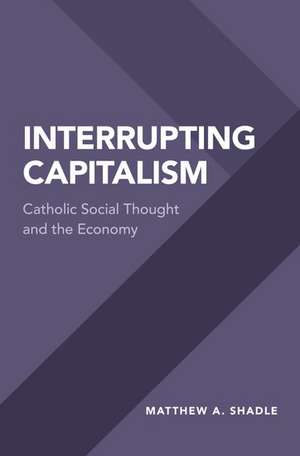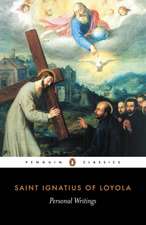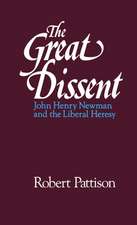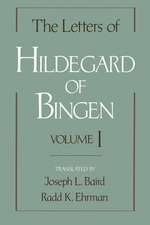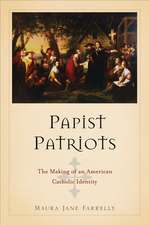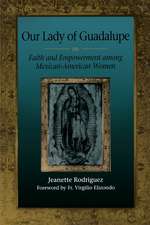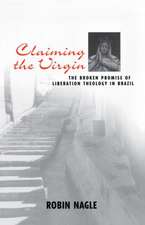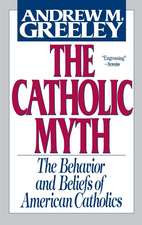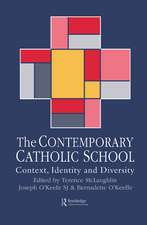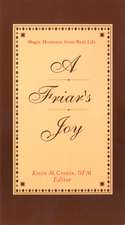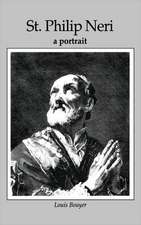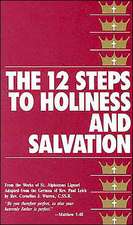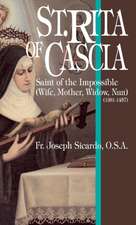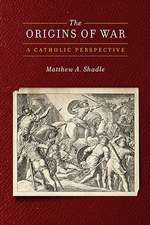Interrupting Capitalism: Catholic Social Thought and the Economy
Autor Matthew A. Shadleen Limba Engleză Hardback – 19 iul 2018
Preț: 548.28 lei
Preț vechi: 783.70 lei
-30% Nou
Puncte Express: 822
Preț estimativ în valută:
104.91€ • 109.54$ • 86.83£
104.91€ • 109.54$ • 86.83£
Carte tipărită la comandă
Livrare economică 24-31 martie
Preluare comenzi: 021 569.72.76
Specificații
ISBN-13: 9780190660130
ISBN-10: 0190660139
Pagini: 392
Dimensiuni: 236 x 155 x 33 mm
Greutate: 0.66 kg
Editura: Oxford University Press
Colecția OUP USA
Locul publicării:New York, United States
ISBN-10: 0190660139
Pagini: 392
Dimensiuni: 236 x 155 x 33 mm
Greutate: 0.66 kg
Editura: Oxford University Press
Colecția OUP USA
Locul publicării:New York, United States
Recenzii
It is the consistently fair and thoughtful reading of a variety of Catholic thinkers on economic life and the wise interpretation of the official documents of CST that make this book well worth the read.
The broad vision developed here sheds much new light on social values relating to the dynamics of government intervention in market economies, social provision, and balanced economic development. The reader comes away with new resources with which to challenge market fundamentalists and adherents to laissez-faire approaches in our unsustainable consumer-driven society.
The fair-minded, insightful accounts of the positions of others are exemplary throughout the text. Shadle's constructive position presents a challenge to most others in the field. It's quite likely that whatever your view of these issues, his work will helpfully call your position into question.
Shadle (Marymount Univ.) argues against two extremes-fully upholding capitalism or dismantling it-and instead calls for interrupting capitalism by retaining aspects of it that contribute to the common good while challenging aspects that diminish human flourishing. To do this, he sets this conversation within the breadth of Catholic social thought, considering Jacques Maritain and Marie-Dominique Chenu, Vatican II, liberation theology, American Catholicism, John Paul II, and globalization. In considering these thinkers, movements, and circumstances together, the author exposes the reader to the entire scope of Catholic social thought and avoids the all-too-common temptation to privilege some aspects of Catholic social thought over others. Shadle makes clear that all elements of Catholic social thought must be considered when seeking to offer a theological approach to and account of the economy. This comprehensive treatment is well suited to broad audience.
Matthew A. Shadle's book sets an exceptionally learned benchmark for a comprehensive treatment of modern Catholic social thought, especially its treatment of economic lifeIt should be required reading for all Catholic social ethicists, as well as for those outside the field who want to understand what contributions it might make to contemporary economics. It is the kind of book that I will have ready on my shelf for consultation for decades to come. And it surely sets up Shadle for a further book developing his alternative vision.
This lucid volume offers a cogent and persuasive analysis of post-World War II modern Catholic social thought's treatment of economy and economics. Shadle's historically-informed presentations of key issues and texts, judicious engagement with theological-ethical and social-scientific literatures, and constructive interpretive proposals make this an illuminating and valuable contribution. Recommended reading!
Shadle's truly helpful book challenges tired and narrow debates of whether the Church is 'for' or 'against' capitalism with a nuanced look at the concrete intellectual, political, cultural, and policy contexts in which the Church's modern social teaching has developedfrom Leo XIII and postwar Social Democracy to Liberation Theology and American Neocons. By taking history seriously, this book opens the possibility of a richer debate about how to move forward.
The broad vision developed here sheds much new light on social values relating to the dynamics of government intervention in market economies, social provision, and balanced economic development. The reader comes away with new resources with which to challenge market fundamentalists and adherents to laissez-faire approaches in our unsustainable consumer-driven society.
The fair-minded, insightful accounts of the positions of others are exemplary throughout the text. Shadle's constructive position presents a challenge to most others in the field. It's quite likely that whatever your view of these issues, his work will helpfully call your position into question.
Shadle (Marymount Univ.) argues against two extremes-fully upholding capitalism or dismantling it-and instead calls for interrupting capitalism by retaining aspects of it that contribute to the common good while challenging aspects that diminish human flourishing. To do this, he sets this conversation within the breadth of Catholic social thought, considering Jacques Maritain and Marie-Dominique Chenu, Vatican II, liberation theology, American Catholicism, John Paul II, and globalization. In considering these thinkers, movements, and circumstances together, the author exposes the reader to the entire scope of Catholic social thought and avoids the all-too-common temptation to privilege some aspects of Catholic social thought over others. Shadle makes clear that all elements of Catholic social thought must be considered when seeking to offer a theological approach to and account of the economy. This comprehensive treatment is well suited to broad audience.
Matthew A. Shadle's book sets an exceptionally learned benchmark for a comprehensive treatment of modern Catholic social thought, especially its treatment of economic lifeIt should be required reading for all Catholic social ethicists, as well as for those outside the field who want to understand what contributions it might make to contemporary economics. It is the kind of book that I will have ready on my shelf for consultation for decades to come. And it surely sets up Shadle for a further book developing his alternative vision.
This lucid volume offers a cogent and persuasive analysis of post-World War II modern Catholic social thought's treatment of economy and economics. Shadle's historically-informed presentations of key issues and texts, judicious engagement with theological-ethical and social-scientific literatures, and constructive interpretive proposals make this an illuminating and valuable contribution. Recommended reading!
Shadle's truly helpful book challenges tired and narrow debates of whether the Church is 'for' or 'against' capitalism with a nuanced look at the concrete intellectual, political, cultural, and policy contexts in which the Church's modern social teaching has developedfrom Leo XIII and postwar Social Democracy to Liberation Theology and American Neocons. By taking history seriously, this book opens the possibility of a richer debate about how to move forward.
Notă biografică
Matthew A. Shadle is Associate Professor of Theology and Religious Studies, Marymount University.
